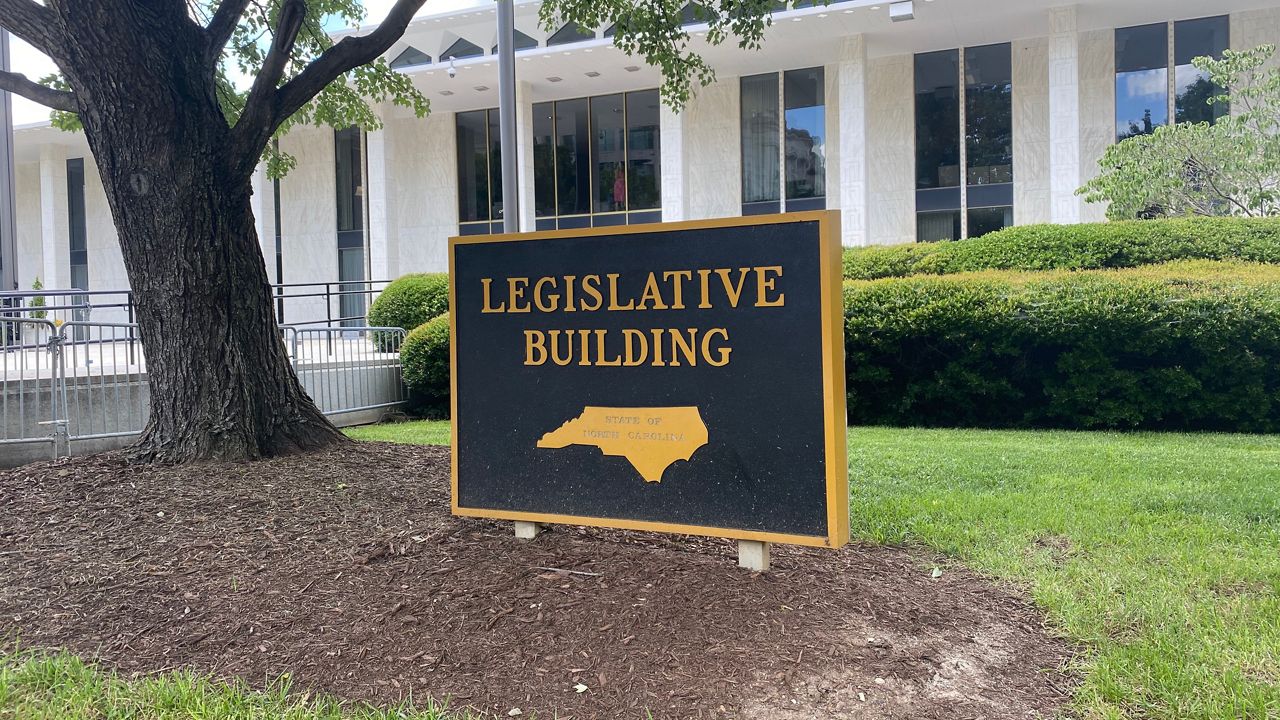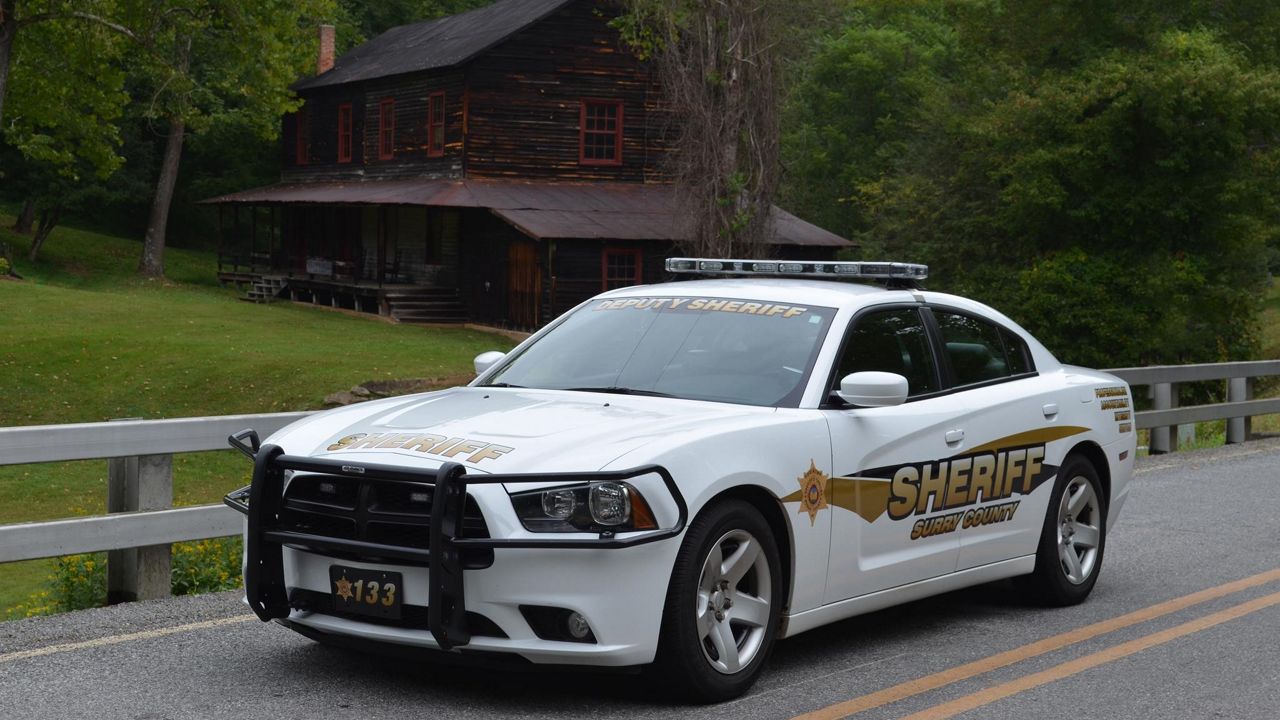One bill would allow people in North Carolina to carry a concealed handgun without a permit. Another would allow the State Bureau of Investigation to track phones without a warrant in an emergency. A third would spend hundreds of millions more for private school vouchers in North Carolina.
These are just a fraction of the dozens of pieces of legislation on the table in various committees at the General Assembly Tuesday.
Wednesday is crossover at the General Assembly, the deadline for non-budget bills to pass at least one chamber in the legislature. With the cut-off date looming, there’s a flurry of legislation up for debate on Jones Street.
There are exceptions to the deadline. Bills dealing with the budget can still come up. There is also a legislative maneuver called a “proposed committee substitute,” PCS for short, that allows legislators to essentially strip everything out of a bill and put a new one in its place.
The House rules committee passed 35 bills Tuesday afternoon, sending them to the floor for a vote. Another 11 bills are on the agenda for the Senate’s floor session Tuesday.
Two of the bills that have attracted the most attention in recent months, medical marijuana and sports gambling, have already passed in one chamber and made it through the crossover deadline. Those are expected to be taken up again in the coming weeks. The Senate budget proposal is also expected in the coming weeks.
Republicans, thanks to a Democratic defection in the House, now have a supermajority in both chambers of the North Carolina legislature. The GOP came into the new session with a laundry list of priorities, and so far they’ve been successful at passing legislation, even overriding the governor’s veto on a gun bill.
The legislature already passed a bill, and voted to override Gov. Roy Cooper’s veto, to end the pistol purchase permit program. That program required people to get a permit from their county sheriff’s office before buying a handgun.
The North Carolina Constitutional Carry Act would allow people to carry concealed guns without a permit. Current law requires people to get a permit to carry a concealed handgun. The bill passed a key House committee Tuesday morning.
The North Carolina Sheriffs’ Association opposed the bill Tuesday.
“Right now sheriffs can make sure people who carry concealed weapons know the law, have a minimal level of accuracy, they run mental health checks and make sure they don’t have any types of criminal histories,” said Marie Evitt, with the sheriffs’ association.
“This bill would allow folks themselves to determine whether they are capable of carrying a concealed weapon. Sheriffs now have trained staff who have trouble determining that sometimes,” she said.
Another bill in the House would change the rules to get a concealed gun permit. Currently, military veterans are only allowed to get a concealed gun permit if they received an honorable discharge. The bill changes that to say they can only be denied a permit if they received a dishonorable discharge, not other types of discharges.
A third bill dealing with concealed-carry permits would create a temporary permit program for people moving to North Carolina. New residents in the state who have an out-of-state permit to carry a concealed gun could get a temporary permit in North Carolina while they apply for the state-issued permit.
A bill that could ban drag shows as obscene was filed last month in the House. That legislation has not moved forward in committee.
There are companion bills in the House and Senate that would ban gender-affirming care for minors. In the House, that is sitting in the rules committee, the last stop before a potential floor vote. The Senate bill was filed in early April and hasn’t moved since.
The Senate passed a bill in April that would stop transgender athletes from playing on school teams consistent with their gender identity. That bill is now in the House.
The “Parents’ Bill of Rights” also passed the Senate and is awaiting hearings in the House. This bill would require schools to tell a child’s parents if they change their name or pronouns. It would also limit what schools could teach on LGBT issues and make a system for parents to request banning books from school libraries.
GOP leaders in the General Assembly indicated recently that they may have a deal on new abortion restrictions.
House Speaker Tim Moore said it was likely the General Assembly could pass a ban on abortion after 12 weeks of pregnancy, with some exceptions. That bill has not been filed yet, but Moore said to expect to see a new abortion bill filed in the coming weeks.
Companion bills in the House and Senate propose spending more than $400 million for private school vouchers starting in 2025. That figure would increase to $550 million by 2032.
The state currently spends about $130 million on school vouchers.
Private school voucher programs have long been debated in the North Carolina legislature, with opinions generally falling on party lines.
Republicans like vouchers to give parents options for where to send their kids to school. Democrats say they take resources away from public schools and that private schools don’t have the same level of accountability.
Since the bill has to do with items on the state budget, it is not subject to the crossover deadline this week. The Senate bill has been making progress in committee. The House bill passed the education committee on Tuesday.
A separate bill in the House, that also passed the education committee Tuesday, proposes giving more money to charter schools. It has a number of other provisions too, including allowing out-of-state and foreign exchange students in charter schools. The bill would also allow counties to use property taxes to help charter schools with big capital projects like adding new buildings or buying new furnishings.









